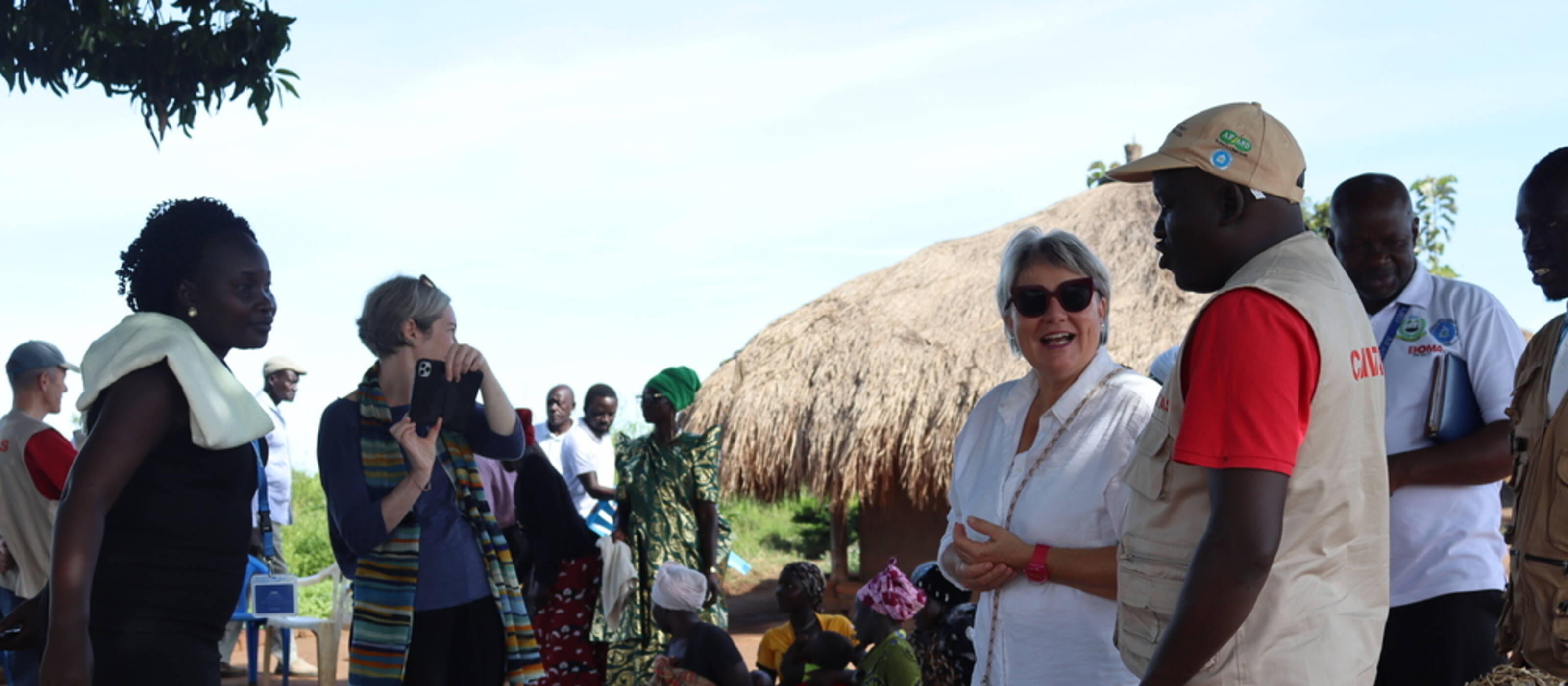

Caritas President: «We need a more long-term approach»
Uganda has one of the youngest populations in the world, with around 80 per cent of people under the age of 30. However, there are not enough job opportunities and poverty is rampant. In this interview, Monika Maire-Hefti, President of Caritas Switzerland, explains why the country in East Africa is considered to be up-and-coming and what she would like to see from the authorities and donors.
Monika Maire-Hefti, Caritas Switzerland is active in around 20 countries worldwide. Why did you travel to Uganda?
Admittedly, I had no previous personal contact with Uganda. However, the country is a good example of the work of Caritas Switzerland. We have been active here since 1994 and implement a wide variety of projects. We provide both short-term humanitarian emergency aid and long-term development cooperation.
What are the current challenges in Uganda?
The north in particular is still scarred by decades of civil war, which ended in 2008. Poverty is particularly high there. There are also hundreds of thousands of refugees from neighbouring countries and the consequences of the climate crisis. As a former director of education, I am particularly concerned about the young population. Around 80 per cent are under 30 years old, half of them under 15. Because there are nowhere near enough job opportunities, this is a challenge, but also an opportunity.
What do you mean by that?
The future lies in the hands of the young. Their potential is huge, as I realised on the project trip. Many are motivated and have a real entrepreneurial spirit. However, they often lack the means to open their own business. And those who do often find it difficult to keep track of their finances or set the right prices. However, they usually just need a little «push» to build up their business or to run it more professionally, successfully and for the long term. This is where Caritas Switzerland comes in with its projects. It was great to see that we can achieve a lot with just a little support. Not only do they themselves benefit from a functioning business, but also their families, suppliers, traders or other partners.
How does this support look like?
With one of our new projects, for example, we are supporting 18 to 30-year-old young entrepreneurs with training courses. They learn the most important things about bookkeeping, costing and marketing. They are also closely supported by mentors and receive temporary microloans. What I find particularly important is that both our staff and those of our partner organisations come from Uganda themselves. They know the working culture and challenges of the project participants inside out and can therefore convey the content much better than someone from Europe would be able to.
What do you personally take away from this trip?
Wow, there's so much! For example, I realised how important it is to combine short-term and long-term measures. This is the only way we can ensure that our support is sustainable. At the same time, it is becoming increasingly difficult to win over public and private donors for a long-term commitment, as the results are not immediately recognisable and can only be measured after a certain period of time. However, we absolutely need a more long-term approach in order to overcome the increasingly complex challenges in countries such as Uganda with poverty, migration flows and the consequences of the climate crisis.
Written by Niels Jost, Media and Public Relations, Caritas Switzerland
Interview requests and further information: medien@caritas.ch
Further information
Header image: © Laura Steiner/Caritas Switzerland